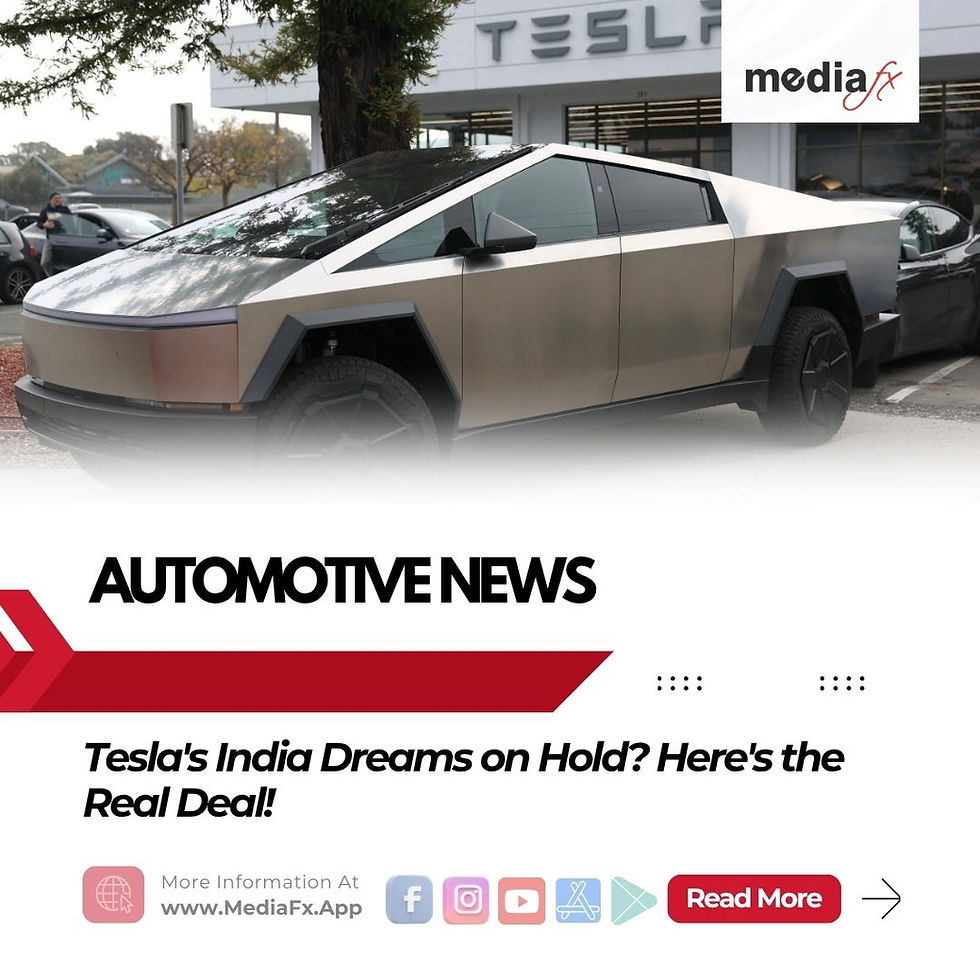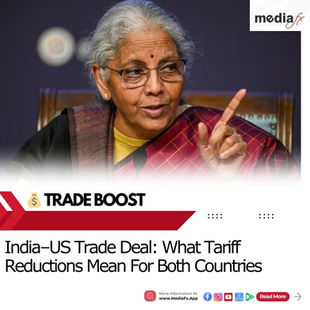🇮🇳🚗 Tesla's India Dreams on Hold? Here's the Real Deal! 😱
- MediaFx

- Jun 2, 2025
- 2 min read
TL;DR 📰
Tesla, the electric vehicle (EV) giant led by Elon Musk, has decided not to manufacture cars in India for now. Instead, the company plans to open showrooms to sell imported vehicles. This move comes despite the Indian government's new EV policy offering significant incentives for local manufacturing. Meanwhile, other global automakers like Mercedes-Benz, Volkswagen, Hyundai, and Kia have shown interest in setting up production facilities in India. The decision has sparked discussions about the implications for India's EV market and domestic manufacturing goals.

🚫 Tesla Says 'No' to 'Make in India' 🏭
Union Minister for Heavy Industries, HD Kumaraswamy, announced that Tesla is not interested in manufacturing its electric vehicles in India. Instead, the company aims to establish showrooms to sell imported cars. This decision comes even as the Indian government introduced a new EV policy designed to attract foreign investment by offering reduced import duties for companies that commit to local manufacturing.
📉 High Import Duties Remain a Barrier 💸
India's import duties on electric vehicles are among the highest globally, reaching up to 70%. The new policy reduces this to 15% for companies investing at least $486 million in local production and starting operations within three years. Despite these incentives, Tesla has opted to focus on importing vehicles, citing the high duties as a significant hurdle.
🚗 Other Automakers Step In 🏎️
While Tesla hesitates, other global carmakers are seizing the opportunity. Companies like Mercedes-Benz, Volkswagen, Hyundai, and Kia have expressed interest in India's EV market and are considering setting up manufacturing units under the new policy. This shift could reshape the competitive landscape of India's EV sector.
🗣️ Voices from the Industry 🗨️
Elon Musk's father, Errol Musk, expressed surprise at Tesla's absence from the Indian market, highlighting the country's vast potential and the presence of competitors like BYD and Tata. His comments reflect broader curiosity and perhaps missed opportunities regarding India's rapidly growing EV landscape.
📊 India's EV Ambitions 🚀
Currently, electric vehicles account for only 2.5% of India's total car sales. The government aims to increase this to 30% by 2030. Domestic companies like Tata Motors and Mahindra & Mahindra have already made significant investments in local EV production, positioning themselves as leaders in the market.
🛠️ MediaFx Opinion 🛠️
Tesla's decision not to manufacture in India underscores the challenges of balancing global business strategies with local economic development goals. While the company focuses on importing vehicles, this approach may limit its competitiveness in India's price-sensitive market. Meanwhile, the commitment of other automakers to local production aligns with India's objectives of job creation, technological advancement, and environmental sustainability. From a working-class perspective, supporting companies that invest in local manufacturing can lead to more equitable economic growth and technological empowerment.













































